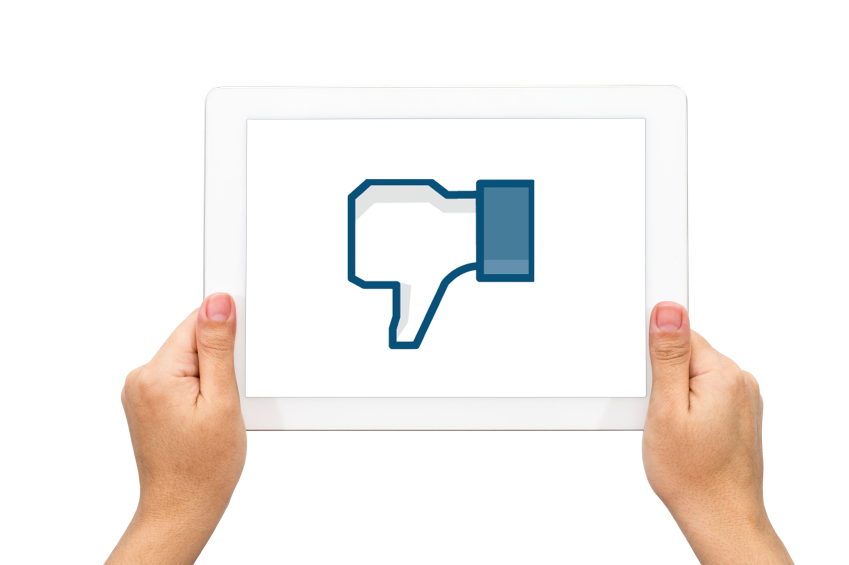Social media is a necessary platform for coaches and athletic directors. Social media has many benefits when used correctly. It can be great for quick communication to your athletes, parents and fans about schedule changes, practice times, sharing photos, hyping the upcoming game and more. However, it’s very common to find social media that isn’t being used in the right ways.

It seems like many coaches and athletic directors have not been taught the “No’s of Social Media.” Because this problem is prevalent, we thought we would take time to teach you what you should not be doing on social media.
Do Not Use Your Personal Accounts to Communicate with Athletes
Social media communication between coaches, athletes and fans is great and encouraged, but the correct forum is on a team or school specific account.
It is very unwise as a coach, teacher and athletic director to communicate with your athletes using your personal accounts while they’re still on your team or a student in your school. For your protection, privacy settings on your personal social media networks should be set so you can control who can view your accounts.
Students and athletes don’t have any business looking in on your social life and what you do outside your school day. You are working with high school children where maturity has not fully developed and there are many repercussions that can come from having them looking at your own personal accounts. In many cases they are too young to fully understand which actions of theirs are inappropriate and the consequences of those actions.
Not only are they too young to understand their own behavior they’re also too young to understand your behavior. Your posts and comments may be seen to them as inappropriate or different from what you portray at work, possibly causing issues and complications in your career and coaching abilities.
Do Not Post Inappropriate Comments and Photos on Team Accounts
This should go without saying, but unfortunately other coaches have made this mistake and it’s important to learn from the past. If you have to think twice about what you’re posting, don’t post it. If you think there is the slightest sign of inappropriateness don’t post it. It’s not worth it.
When you have a Twitter handle, Facebook page, Instagram account, etc. everything you say and post is documented and could be potentially used against you. It is best to stick with strictly positive, encouraging or informative messages. When posting pictures, only post pictures with positive messages and with the athlete’s approval. Make sure you’re taking time to make sure all your team members are fairly represented to avoid hurt feelings.
Be careful how you word comments when responding to posts. A “Looking good” comment on a female’s photo when you’re a male coach can and very likely will be taken the wrong way even if it is not intended that way. “Very proud of your effort today” is a more clear and appropriate response.
Simply “liking” every one of your athlete’s pictures and tweets is also not necessarily the best way to support them. It does not show that you care like a personal comment of encouragement or congratulations might.
You cannot try and be their best friends, you need to be a role model and set a good example. Being a coach is often times like being a second parent. You need to model excellence, maturity and responsibility to them rather than only be their buddies on social media.
Do Not Use Poor Grammar or Profanity
Again, you are to be an example to these children. Using poor grammar conveys a lack of caring or poor education to your players. This rule applies to using profanity as well. Your job is to show them the correct way to handle situations and how to present themselves as adults. Using poor grammar and profanity teaches your athletes that type of behavior is okay. When colleges look at possible recruits and they read profanity and grammatical errors on social accounts, they may question if they want that athlete representing their University.
Do Not Get In Arguments On Social Media
This should also go without saying, but coaches have made this mistake in the past. Everything you write down and send across a social media can be tracked. By arguing with your players or their parents online, your words become permanent and could be used against you. Everyone looses his or her cool from time to time, but it is best to wait and respond in person or on the phone. This will allow you time to relax and respond more effectively.
Do Not Say Anything Negative About Athletes, Parents, Other Schools, etc.
You should never put your negativity in a world for everyone to see. Passive aggressive snide remarks are never okay. You’re essentially teaching your athletes poor sportsmanship and inappropriate behavior. If you can’t control your mouth or temper you ought not to be posting anything. The golden rule, “if you don’t have anything nice to say, don’t say it at all” applies 100% to social media.
Social media can be a wonderful tool and asset to a coach or athletic director. By keeping the above tips in mind and exercising good common sense, your athletes, parents and fans will benefit from your use of social media.